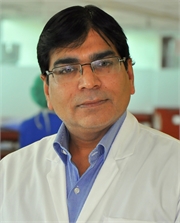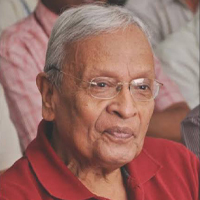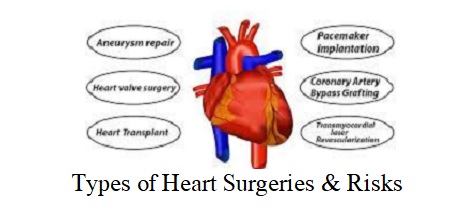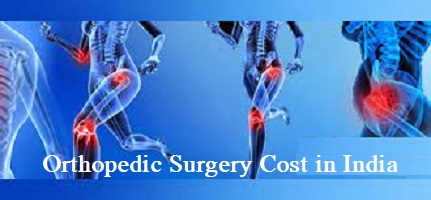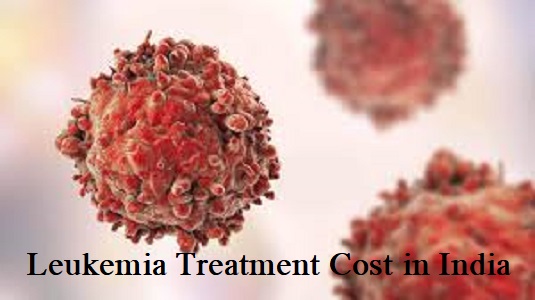Leukemia is a blood cancer that affects people of all ages. Leukemia is the most prevalent cancer among those under the age of 15, although affecting adults over the age of 55 more often.The bone marrow is the primary site of origin for leukemia. It involves a disruption in the normal production of platelets, red blood cells, and white blood cells. Leukemia cells, which are usually immature white blood cells, multiply uncontrollably in contrast to healthy cells, replacing normal cells in the bone marrow. The body’s capacity to resist infections, produce blood clots, and supply oxygen is compromised by this overproduction. There are several forms of leukemia; some are more common in youngsters than in adults. A lot of progress has been achieved in the effectiveness of leukemia treatments in India, where the 5-year survival rate is 65%.
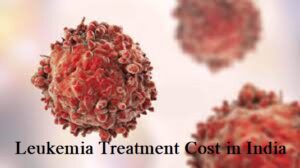
What are the different types of Leukemia?
- Acute Lymphocytic Leukemia (ALL): Individuals up to the age of 39 are most commonly affected by acute lymphocytic leukemia. But adults can also be affected by it. The leukemia cells of this subtype divide quickly, which causes the disease to advance quickly. It is a potentially fatal disorder that requires immediate attention.
- Acute Myelogenous Leukemia (AML): This type of acute leukemia is most common in adults, but it can also strike youngsters. Those over 65 in particular are significantly more likely to experience it than other individuals. The illness advances quickly, necessitating quick treatment decisions.
- Chronic Lymphocytic Leukemia (CLL): People over 65 are more likely to be affected by this type of leukemia, which is the most prevalent type among adults. Compared to acute leukemia, this subtype usually progresses more slowly, with symptoms sometimes going unnoticed for years at a time. The identification and treatment of delayed onset symptoms present specific difficulties, especially in the elderly population.
- Chronic Myelogenous Leukemia (CML): People over 65 are notably more likely to be affected by CML, which is mostly seen in elderly adults. CML progresses more slowly than acute leukemia, and symptoms can not appear for years.
What are the signs and symptoms of Leukemia?
Depending on the specific type of leukemia, there can be a wide range of signs and symptoms. Common signs and symptoms of leukemia include:
- Fever or chills
- Persistent fatigue and weakness
- Frequent or severe infections
- Unexplained weight loss
- Swollen lymph nodes, liver, or spleen
- Easy bleeding or bruising
- Recurrent nosebleeds
- Tiny red spots on the skin
- Excessive sweating, especially at night
- Bone pain or tenderness
What are the causes of Leukemia?
The cause of leukemia is a combination of hereditary and environmental elements; however, the exact reasons are yet unknown. Genetic abnormalities cause blood cells to grow and divide uncontrollably, which is the first sign of the disease. This interferes with the generation of healthy blood cells; thus, defective cells predominate in the bone marrow. Prior radiation or chemotherapy, genetic conditions such as Down syndrome, and exposure to benzene from cigarette smoke has all been identified as risk factors.
What are the risk factors associated with Leukemia?
Leukemia is a complex disease. While its exact causes are still unknown, several risk factors have been found to raise the chance that it may develop. Some of the risk factors associated with leukemia are:
- Previous Cancer Treatment: Those who have received certain chemotherapy and radiation therapy for previous cancers may be more susceptible to leukemia of particular types. These medicines’ effects on bone marrow cells may result in changes in DNA that increase weakness.
- Genetic Disorders: The development of leukemia is significantly influenced by genetic abnormalities. A higher risk of leukemia is linked to conditions like Down syndrome. These illnesses’ complex genetic makeup may interfere with regular cellular functions and accelerate the beginning of the illness.
- Chemical Exposure:Some chemicals, including benzene, which is present in gasoline and used in many industrial operations, have been connected to a higher risk of developing certain kinds of leukemia.
- Smoking:One known risk factor for acute myelogenous leukemia is cigarette smoking. This particular type of leukemia may be more common in those who have smoked in the past or who have been around secondhand smoke.
- Family History:One known risk factor for leukemia is a family history of the disease. In certain situations, genetic predispositions may enhance the risk.
- Radiation Exposure:Elevated risk of leukemia has been associated with high amounts of radiation exposure, via medical treatments such as radiation therapy or environmental sources. Ionizing radiation damage to bone marrow cells can result in genetic alterations that have the potential to cause leukemia.
- Age Factor:Leukemia is more common in people over 60, with an increasing risk of the illness with advancing age.
What is the diagnosis for Leukemia in India?
An extensive and methodical approach that includes a variety of diagnostic examinations and testing is used to diagnose leukemia in India. Because early detection is so important, doctors use a variety of instruments to spot leukemia symptoms before the disease presents itself. Some of the diagnostic techniques performed for leukemia in India are:
- Physical Evaluation:Doctors in India monitor patients for physical indicators of leukemia during a physical examination. These can include anemia-related pale skin, enlarged lymph nodes, and liver and spleen enlargement. They also look for any possible skin rashes linked to leukemia.
- Blood Tests:An essential blood test for identifying abnormally high or low amounts of red or white blood cells and platelets is a complete blood count (CBC). Leukemia may be suspected when white blood cell levels are high. Additional blood cell analyses might be carried out, employing methods like peripheral blood smear and flow cytometry to detect indicators pointing to the existence of leukemia cells.
- Bone Marrow Examination:A bone marrow test is an essential part of the leukemia diagnostic process. Doctors in India could advise a bone marrow aspiration or biopsy, which involves taking a sample from the hipbone. This sample’s laboratory examination identifies the existence of leukemia cells and offers details on specific features that affect treatment decisions.
- Imaging and Additional Tests:To determine if leukemia has impacted bones, organs, or tissues, imaging procedures such as CT, MRI, or chest X-rays may be recommended. These tests are used to detect potential disease progression or consequences.
- Lumbar Puncture (Spinal Tap):To check for signs of leukemia spreading to the spinal fluid around the brain and spinal cord, a lumbar puncture may be required in certain cases. This approach ensures a thorough assessment by adding another level to the diagnostic process.
- Chromosome and Genetic Testing:The molecular knowledge of leukemia is greatly helped by genetic testing. Doctors in India may use genetic testing to identify particular genes and chromosomal abnormalities that support leukemia development.
What are the different treatment options for Leukemia in India?
The range of leukemia treatment available in India includes several methods that are customized to the unique needs of each patient as well as the unique features of the illness. The type of leukemia, how far along it is in its progression, the patient’s age, general health, and previous cancer therapies all affect the treatment option. The common treatment options for leukemia in India are:
- Chemotherapy: In India, chemotherapy is still the primary component of the treatment of leukemia. Strong medications are used in this systemic method to specifically target and eradicate leukemia cells. Oral medications or intravenous injections are two possible methods of delivery; depending on the particular form of leukemia, different drug combinations are frequently used.
- Targeted Therapy:Targeted therapy targets specific abnormalities seen in cancer cells. Testing is done on leukemia cells in India to find these anomalies. Targeted medications are then used to disrupt the found pathways, killing the cancer cells. This exact method seeks to reduce damage to healthy cells.
- Radiation Therapy:High-energy X-rays or beams are used in radiation therapy to harm leukemia cells and stop their growth. In India, this treatment can entail whole-body radiation, or it might target certain body parts where leukemia cells have gathered.
- Bone Marrow Transplant (Stem Cell Transplant):In India, a stem cell or bone marrow transplant is a major treatment option. In this method, the diseased bone marrow is replaced with leukemia-free stem cells from a donor (allogeneic transplant) or the patient (autologous transplant). High-dose chemotherapy or radiation treatment is given before the transplant to eradicate bone marrow that causes leukemia.
- Immunotherapy:Using immunotherapy, cancer is attacked by the body’s immune system. Some medications are used in India to boost the immune system’s capacity to recognize and destroy leukemia cells. By creating proteins that mask their existence, cancer cells can escape the immune system, which presents a problem.
- Chimeric Antigen Receptor (CAR) T-Cell Therapy:CAR-T cell therapy is an innovative treatment that modifies the patient’s T cells to specifically target and destroy leukemia cells. This new approach is being explored for certain types of leukemia in India.
- Surgery (Splenectomy):When leukemia cells have spread to the spleen to a large extent and are pressing on other organs, a surgical procedure called a splenectomy may be required. The purpose of this treatment is to reduce the problems brought on by an enlarged spleen that has been affected by cancer.
- Clinical Tests:Access to cutting-edge therapeutic techniques and new cancer therapies is made possible via clinical trial participation. Patients in India are urged to carefully assess the dangers and uncertainties connected with experimental therapies in collaboration with their healthcare doctors, even if clinical trials have significant potential benefits.
What are the phases of treatment for Leukemia in India?
Phased treatment plans, intended to methodically address the disease at various phases, are commonly used in India to control leukemia. This method is divided into three main stages, each of which aims to maximize the results of treatment:
- Induction Therapy:To achieve remission, the main goal of induction treatment is to eliminate as many leukemia cells as possible from the bone marrow and blood. The absence of leukemia cells in the blood, the recovery of blood cell counts to normal levels, and the elimination of all disease signs and symptoms are the characteristics of remission. Induction therapy is a vital first stage in treatment that usually lasts four to six weeks in India.
- Consolidation (Intensification):To lower the chance of a return of the disease, consolidation treatment attempts to eradicate any leukemia cells that may still be present. Consolidation treatment, which is administered in cycles over four to six months, is essential for preventing leukemia from relapsing. The cycles are purposefully created to focus on cancer cells that are still present and improve the efficacy of the entire treatment plan. This stage plays a major role in guaranteeing a more thorough elimination of leukemia.
- Maintenance Therapy:It aims to eradicate any leukemia cells that may have remained from the previous stages of treatment and to stop the disease from recurring. In India, maintenance therapy lasts for around two years and offers a longer duration of focused treatment to protect against possible illness recurrence. This stage is essential to maintaining the remission that has been reached and improving the long-term efficacy of leukemia treatment.
What is the success rate of Leukemia Treatment in India?
India has made advances in the treatment of leukemia; the most recent data shows a 5-year survival rate of 65.7% for all cancer subtypes. This figure highlights the efficacy of the various therapeutic modalities used in the nation, including immunotherapy, stem cell transplants, chemotherapy, and targeted therapy. A stepwise treatment plan that is customized for each patient’s profile helps to maximize results. Leukemia management has a remarkable success rate due to a combination of factors including the availability of modern treatments, ongoing medical science breakthroughs, and the knowledge and skill of medical experts.
What is the cost of Leukemia Treatment in India?
The cost of treating leukemia in India varies greatly, from about $500 to $30,000. The kind and stage of leukemia, particular treatment techniques, and the length of the treatment plan are some of the factors that affect this cost variation. The total cost is influenced by therapies like as stem cell transplants, targeted therapy, chemotherapy, and others. The cost is also influenced by the medical team’s experience, the location of the hospital, and other factors.
Top Hospitals for Leukemia Treatment in India
India is home to several top hospitals that cure leukemia and offer innovative treatments along with top-notch care. Top hospitals for leukemia treatment in India around the nation provide a wide range of therapies, such as immunotherapy, stem cell transplants, targeted therapy, and chemotherapy. With their cutting-edge facilities and highly qualified medical staff, these hospitals guarantee the best possible outcomes for their patients. These hospitals are renowned for providing exceptional leukemia care because of their dedication to modern research and individualized treatment strategies.
- Max Super Specialist Hospital Saket
- Fortis Memorial Research Institute
- Artemis Hospital Gurgaon
- BLK Super Specialty Hospital
- Sanar International Hospital Gurugram, Delhi NCR
- Indraprastha Apollo Hospital
- Medanta – The Medicity Hospital
- Marengo Asia Hospital, Gurugram
Best Doctors for Leukemia Treatment in India
Leukemia treatment is the area of specialty for highly skilled and knowledgeable doctors in India, who provide patients with outstanding medical care. These best doctors for leukemia treatment in India are well-known for their expertise in providing a variety of treatment techniques, including immunotherapy, stem cell transplants, chemotherapy, and targeted therapy. These doctors use a tailored and all-encompassing strategy to guarantee the best possible outcomes for their patients, and they are dedicated to remaining up to date with the most recent developments in leukemia care.
- Gaurav Kharya – Indraprastha Apollo Hospitals
- Sachin Jadhav – BGS Gleneagles Global Hospital Bangalore
- Rahul Bhargava – Fortis Memorial Research Institute, Gurgaon
- Nitin Sood – Medanta The Medicity
- Ramandeep Singh Arora – Max Super Specialty Hospital Saket
- Subodh Chandra Pandey – Artemis Hospital
- Shishir Seth – Indraprastha Apollo Hospitals
- Dharma Chaudhary – Sanar International Hospital, Gurgaon
Al Afiya Medi Tour is a leading healthcare and best medical tourism company in India. It offers medical tours from other countries to India. Some of the main countries are Bangladesh, Iraq, Malawi, Zambia, Namibia, Uganda, Kenya, Egypt, Nigeria, and many more. If you are searching for the best medical tourism company then Al Afiya Medi Tour is the best Indian medical tourism company for you. We help you in finding the right hospital, and right doctor for the medical treatments in India. We assist in lung transplant, kidney transplant, skin cancer, liver transplant, stomach cancer, brain tumor surgery, TURP surgery, heart transplant in India, ASD surgery, plastic surgery, VSD surgery, organ transplant, urology treatment, ovarian cancer treatment, skin cancer, breast cancer surgery, knee surgery, shoulder replacement surgery, organ transplant, hip replacement surgery, liver cancer, cancer treatment, cancer hospital in India, etc. at affordable cost in India.




